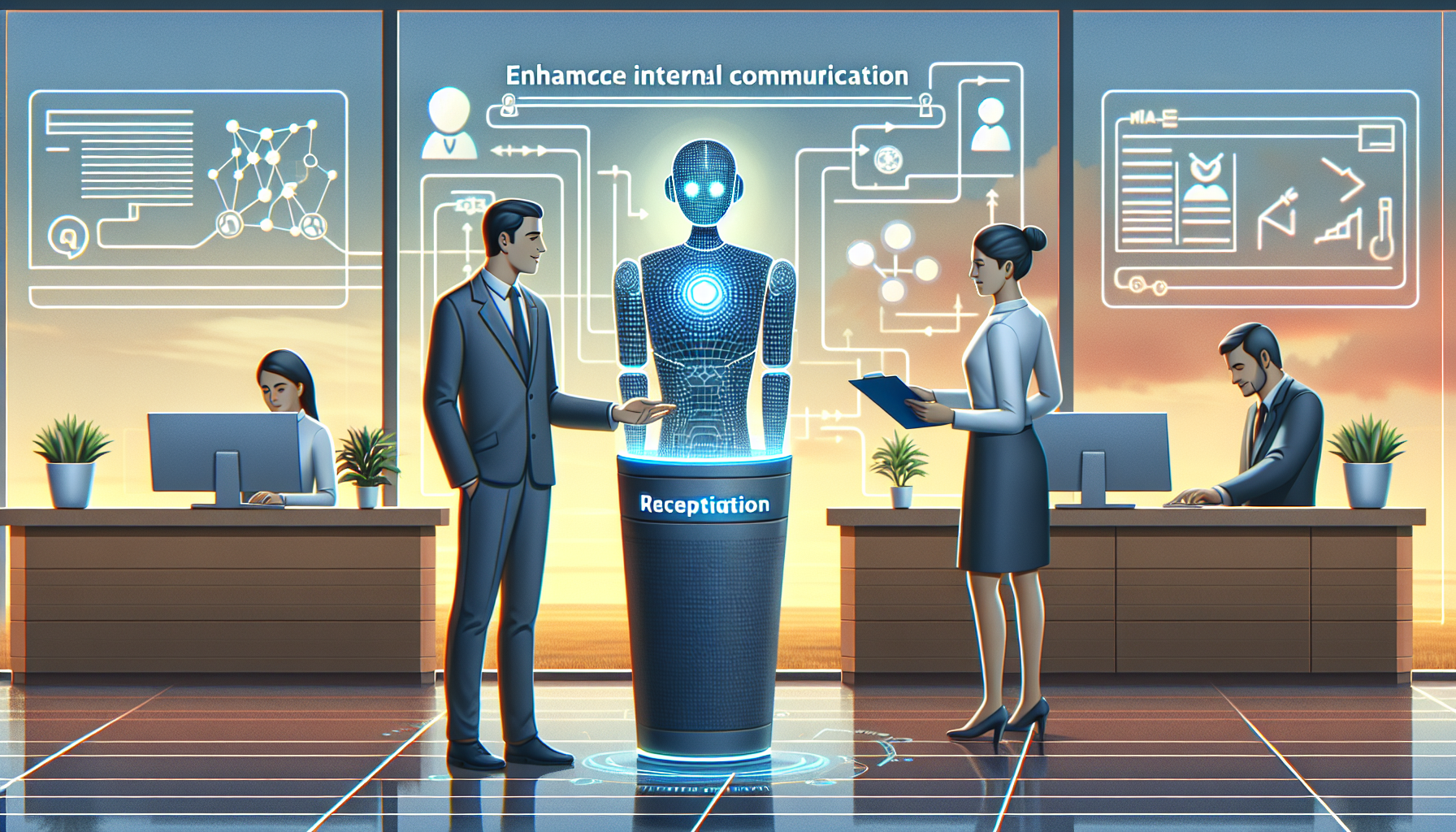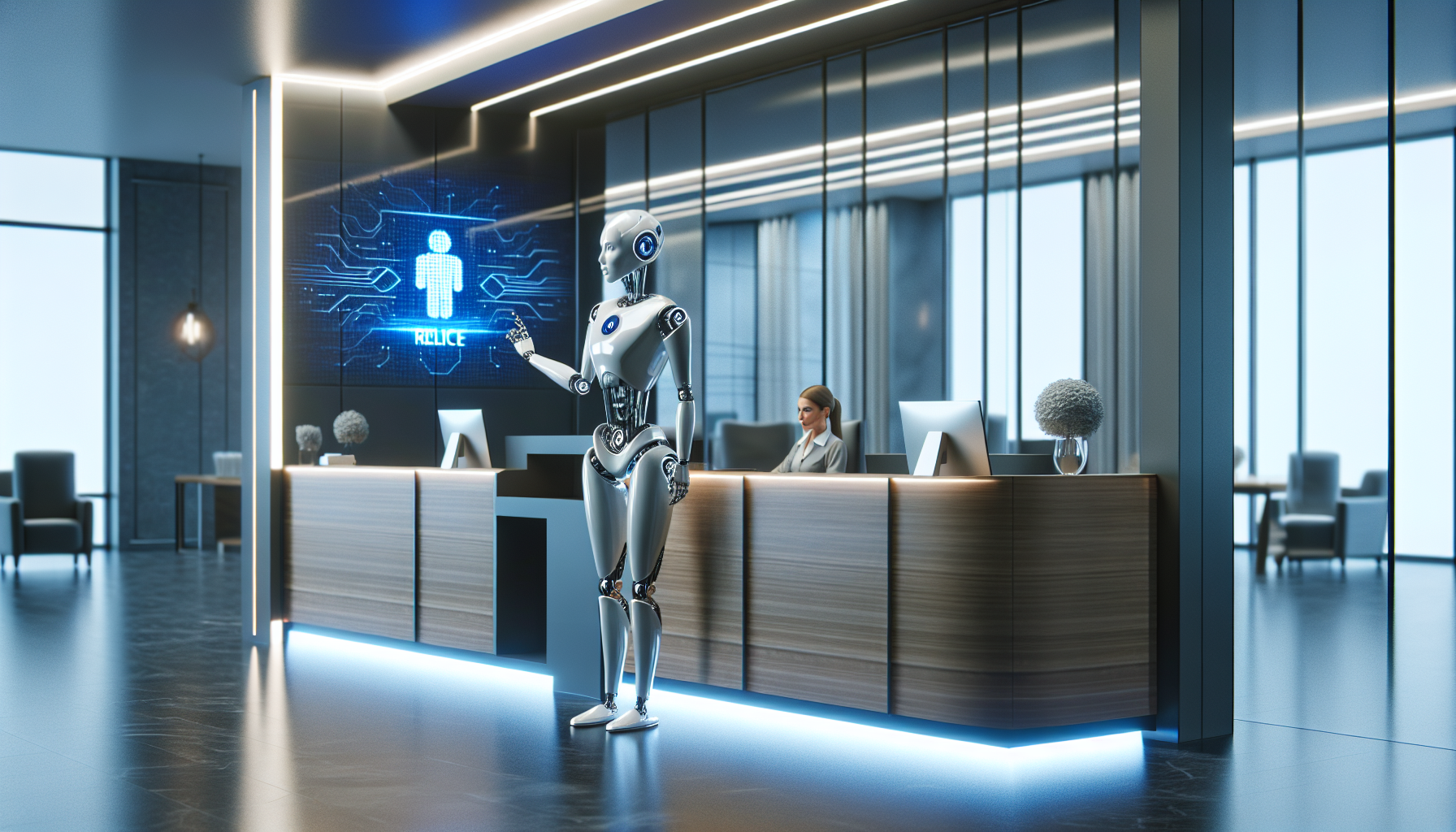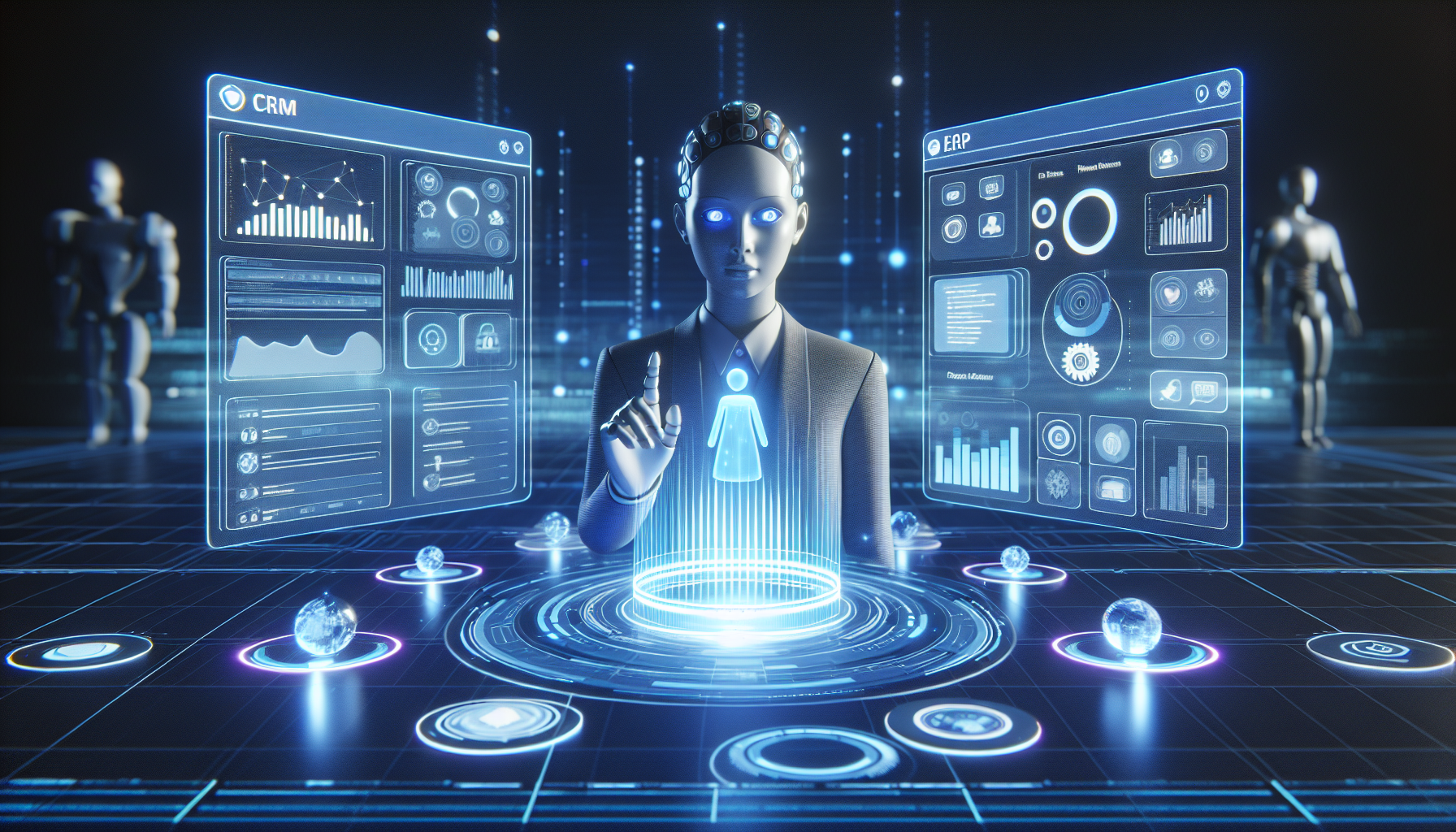
In today's fast-paced digital era, businesses are seeking efficient ways to streamline communication and reduce operational inefficiencies. Among the innovative solutions aiding this transformation is the emergence of AI receptionists. These cutting-edge facilities play a pivotal role in shaping the modern business communication structure, redefining convenience and efficiency by automating a myriad of rudimentary tasks previously undertaken by human receptionists.

Essentially, an AI receptionist is an artificial intelligence software integrated into a business's communication system to handle basic yet critical roles. This ranges from redirecting calls and messages, scheduling meetings, answering FAQs, to ensuring seamless communication between departments. By assuming these tasks, AI receptionists alleviate the burden carried by human personnel while minimizing instances of human error.
AI receptionists have proven their worth in improving internal communication within organizations. They facilitate instant connection to the right departments, ensuring requests, queries, or suggestions don't get lost in translation. These automated systems can work round the clock, providing support even during off-business hours, thereby enhancing overall communication efficiency within an organization.
Moreover, the ability of AI receptionists not just to understand but also learn from human language using Natural Language Processing (NLP) is nothing short of revolutionary. Such intelligent systems can adapt and improve over time, providing customized communication solutions tailored to the needs of the business.
In essence, AI receptionists serve as a vital cog in the wheel of modern business operations. They're ushering in a new era of automated business communication that's efficient, effective, and perhaps, most importantly, consistently reliable.
The role of AI receptionists, therefore, cannot be understated in current business environments. Beyond the convenience and operational efficiency, these intelligent systems illustrate the constantly evolving face of business communication and how technology can be harnessed to redefine traditional business structures.
In recent years, the integration of Artificial Intelligence (AI) into various sectors has fundamentally changed the way businesses operate. One transformative application has been the introduction of AI receptionists which have significantly streamlined internal communication by enhancing the speed and accuracy of information flow within a company.
AI receptionists essentially serve as virtual assistants, facilitating smooth communication channels. By automating responses to routine queries and redirecting specific requests to the relevant departments efficiently, these AI systems reduce bottlenecks that can hinder a company's operations. In many cases, AI receptionists can handle a multitude of tasks simultaneously, dwarfing the capability of their human counterparts, and thereby enhancing productivity.
Moreover, the adaptability of AI receptionists to learn and improve from previous interactions allows for potent refinement in the accuracy of information provision. Over time, this functionality allows for a more harmonized flow of information within the organization, resolving queries much quicker. This ability to adapt and continuously learn is the crux upon which AI thrives, and it is this very capacity that vastly improves the fluidity of communication within a company.
Furthermore, by providing 24/7 availability, AI receptionists ensure constant communication availability, irrespective of standard office hours. This perpetuates a flexible work environment wherein employees can find immediate responses to their questions at any time, thereby boosting both productivity and employee satisfaction.
Overall, the role of AI receptionists is critical in our modern era of business. By seamlessly integrating into companies, they drastically improve the speed, accuracy, and availability of communication channels, consequently minimizing any potential for contingency-induced disaster.
Embracing new technology has become crucial in today's digitized business world. More than an option, AI receptionists are taking center stage, not just in automating business operations but also in streamlining internal communication. To maximize their potential, they seamlessly integrate with existing business tools and platforms, such as Customer Relationship Management (CRM) and Enterprise Resource Planning (ERP) systems.

One of the stand-out AI receptionist platforms, My AI Front Desk, recognizes the prevalent need for businesses to sync and leverage their CRM and ERP systems for enhanced communication. Using the power of Zapier integration, My AI Front Desk enables businesses to automate tasks by connecting their AI receptionist to more than 2000 apps.
With Zapier's integration, businesses can set up automated workflows, often referred to as Zaps, which simply means an automated task created between two apps. If a visitor checks in with the AI receptionist, a Zap could create a new contact in the company’s CRM, for instance. This streamlined process not only saves time, but ensures accurate, real-time data synchronization.
By enabling this powerful integration, companies essentially usher in a new world of effortless communication, reducing administrative tasks and providing more time for teams to focus on strategic operations. This fusion of AI and existing systems promises a smoother, more effective conduit for internal communication.
Artificial Intelligence (AI) has become a critical part of modern businesses' internal communication strategies. AI receptionists, in particular, are streamlining business processes and improving efficiency. In this section, we'll look at a few case studies of companies who have successfully integrated AI receptionists into their internal communication strategies.
First up is SpaceX. Elon Musk's pioneering space exploration company, SpaceX, has been using an AI receptionist for handling vast amount of internal communication, managing queries, and even scheduling meetings, from more trivial questions such as lunch menus to coordinating critical pre-flight communications. Increased productivity and decreased response times have been notable benefits from this integration.
The next example is a leading hospitality company, Hilton. They’ve introduced 'Connie', the world's first AI hotel concierge. Connie not only handles queries from customers but also assists with internal communication within various departments of the hotel. As a result, Hilton witnessed a significant improvement in operation efficiency and customer satisfaction.
Our final example is IBM. IBM's AI, better known as Watson, has been adopted as an AI receptionist for many organizations. Watson has proven to be indispensable in streamlining internal communication processes, enabling the delivery of faster and more targeted responses to queries.
Thus, these case studies underline the potential of AI receptionists. The integration of this technology into our workplaces can allow us to focus on more complex tasks, while automation handles routine communications. The increase in efficiency, streamlined communications, and improvement in overall productivity are undeniable benefits of adopting AI receptionist.
```Implementing AI receptionists can streamline internal communication in a business, but there are also several challenges and considerations.
Firstly, the transition to AI receptionists from human receptionists can be a daunting task for employees as well as the management. Work patterns and processes that employees are used to might get disrupted, thereby increasing resistance to change. Therefore, companies should invest in change management strategies to ensure smooth operation.

Secondly, issues pertaining to data privacy and security play a significant role. The AI receptionists handle sensitive business information, which if handled inappropriately, can lead to severe legal implications. Hence, strict data security measures should be implemented, such as data encryption and restricted access. Companies should also acquaint themselves with global data protection regulations like GDPR.
Lastly, the adoption of AI receptionists may trigger concerns regarding the depersonalization of communication. Although AI receptionists can handle queries efficiently, they lack the personal touch that human receptionists offer, which is vital in certain business interactions with clients or employees. Therefore, businesses should carefully examine the scope of AI implementation in their communication strategy, striking a balance between technology and personal touch.
Despite these considerations, the benefits offered by AI receptionists—such as cost-reductions, improved scalability, and enhanced communication efficiency—make them a staple in the forward-looking business world.
In conclusion, businesses need to overcome the initial hurdles of introducing changing workflows, upholding data privacy, and maintaining personal communication while incorporating AI receptionists into their communication infrastructure. By addressing these challenges, businesses can use AI receptionists to achieve smooth, streamlined internal communication.
In a continuously evolving business environment, innovative solutions have become paramount in maintaining an edge. AI receptionists represent such an optimal solution, enhancing efficiency, alleviating administrative stress, and catalyzing internal communication within organizations.
The benefits AI receptionists bring to internal communication cannot be overstated. By automating routine tasks, they ease the workload of employees allowing them to assign more time and energy to higher-level tasks. Thanks to AI chatbots, queries about company policies or protocol become quicker and simpler, fostering a culture of transparency. Additionally, the 24/7 availability of AI receptionists mitigates the issue of having crucial communication hampered by disparate time zones or holiday periods.
Looking toward the future, it's certain that the role of AI in streamlining internal business communication will only continue to grow. Given the astonishing advancements in natural language processing and understanding capabilities, one can only imagine where this could take us. Sophisticated AI platforms could potentially facilitate internal brainstorming sessions, assist with project management, or even instigate the automation of decision-making procedures.
Predictive abilities of AI could assist in foreseeing potential operational issues. For instance, AI could predict and prevent possible communication break-downs or employee burnout situations, thus contributing to a healthier and more productive work environment. As we continue to embrace AI technology and integrate it further within our daily operational processes, the capabilities seem limited only by our collective imagination.
Through facilitating efficient and unimpeded communication within an organization, AI receptionists prove a crucial tool for the modern business operation. And with advancements in AI technologies, their role is set to become more central and expansive in the future. The era of AI for productive internal business communications has only just begun. Let us embrace the opportunities that lie ahead.
Start your free trial for My AI Front Desk today, it takes minutes to setup!








